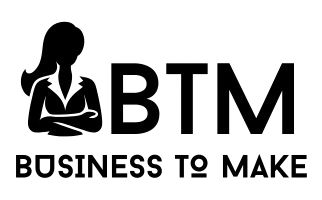Are you prepared to launch your own online business? But you don’t know where to begin.
In this article, I’ll tell you about the best online business ideas for beginners. So let’s start. You’ve probably seen a lot of advertisements for the top beginner-friendly internet firms. I hope you’ve heard and seen hundreds of claims of easy money and passive income. Even so, they sound excellent. The majority of these don’t provide the complete picture.
In actuality, launching an internet firm calls for tenacity, reliability, and a brilliant concept that aligns with your abilities and objectives. This post will guide you through low-risk, realistic, and simple internet business ideas that have the potential to develop into a full-time source of income in the future.
Why today’s novices may succeed with internet enterprises.
Starting an internet business has several advantages, particularly for those who are new to entrepreneurship:
- There is no requirement for a real office or store.
- Low initial expenses may only need $100 to get started
- You may work on the weekends, in the evenings, or during lunch breaks thanks to a flexible schedule.
- No advanced degrees or qualifications are needed,
- You may start small and grow gradually.
Internet enterprises are therefore ideal for anybody searching for new revenue streams, whether they are students, stay-at-home mothers, side hustlers, or someone else entirely.
The 10 Best Online Business Ideas for Beginners (No Tech Skills Needed)
Let’s look at several internet business concepts that are genuinely doable for beginners, along with how to get started.
1. Micro-Consulting for Local Niches
Have a background in fitness, gardening, or bookkeeping? Provide brief online coaching sessions or consultations to local small enterprises or individuals.
Example:
Help local business owners in your town improve their social media presence via Zoom.
Start by:
- Creating a simple page on Carrd or Notion
- Promoting your service on local Facebook groups or Nextdoor
2. Voiceover and Audio Work
Have a pleasant voice or clear speaking tone? There’s a growing demand for beginner-friendly voiceover work on platforms like Voices.com and Bunny Studio.
Projects include:
- YouTube narrations
- Audiobook reading
- E-learning content
Tools you need:
- A quiet room
- A USB microphone (such as the Samson Q2U or Blue Yeti)
- Free editing software like Audacity
3. Digital Curation Shops (No Inventory Needed)
Instead of creating products, you curate them. Create bundles of royalty-free resources (wallpapers, fonts, planners) and sell them through a “digital boutique” using Etsy or Payhip.
Why it works:
- No design skills needed just good taste
- Minimal competition in specialized markets (such as gothic planners and cottagecore templates)
Pro tip: Concentrate on an aesthetic niche or subculture that you find appealing.
4. Businesses That Use Newsletters
Create a specialized following with a free email newsletter, then make money with affiliate links, sponsorships, or premium memberships.
Use platforms like:
- Substack
- Beehiiv
- ConvertKit
Topics that work well:
- Local news roundups
- Parenting hacks
- Budget-friendly recipes
- Gaming tips or crypto summaries
5. Online Book Flipping
Buy underpriced books on eBay, charity shops, or Facebook Marketplace, and resell them online at higher prices.
Where to resell:
- Amazon (using Fulfilled by Merchant)
- eBay
- AbeBooks
Use free tools like ScoutIQ or BookScouter to identify valuable titles.
Start with: £50–$100, one or two weekends, and a willingness to research.
6. Remote Notetaking or Transcription
Companies, students, and researchers often need clean, accurate notes. If you’re a fast typer or a good listener, you can turn this into a business.
Who needs this:
- University students with recorded lectures
- Podcast creators needing transcripts
- Market researchers
Where to find gigs:
- Rev
- GoTranscript
- Local universities (UK/US student job boards)
7. Local Online Marketplaces for Services
Create a hyper-local online platform connecting people to gardeners, pet walkers, tutors, or babysitters in your town or city.
You don’t need to be the provider just the connector.
You can:
- Build the marketplace with no-code tools like Softr or Typedream
- Monetize by taking a small commission
- Start with one service (e.g., local pet-sitting for busy professionals)
8. “How-To” Content Creation for Niche Communities
Rather than becoming a full-blown influencer, create helpful, niche-specific content—like “how to start a worm compost bin” or “Excel tips for architects.”
Post on:
- TikTok
- Pinterest (excellent for instructions with images)
- Medium (for detailed instructions)
Monetization routes:
- Link affiliate tools you recommend
- Offer paid templates or cheat sheets
- Open a Tip Jar or Ko-fi account
9. Simple Web Design for Offline Businesses
You don’t need to code to build websites today. Many small, offline businesses still need basic websites.
What you’ll offer:
- 3–5 page websites using tools like Wix, Squarespace, or Carrd
- Google Business profile optimization
- Design that adapts to mobile devices
Fee: $200 to $800 per site (or provide a maintenance plan for a month)
10. Sell AI-Enhanced Services
AI tools like ChatGPT, Midjourney, and Canva Pro are making it easier than ever to deliver services like:
- Resume writing
- Ad copy creation
- Logo generation
- Social media content plans
How to start:
- Choose one service and niche
- Use AI to draft, then edit manually for quality
- Promote in niche Facebook groups or Reddit communities
10. Sell AI-Enhanced Services
AI tools like ChatGPT, Midjourney, and Canva Pro are making it easier than ever to deliver services like:
- Resume writing
- Ad copy creation
- Logo generation
- Social media content plans
How to start:
- Choose one service and niche
- Use AI to draft, then edit manually for quality
- Promote in niche Facebook groups or Reddit communities
Frequently Asked Questions (FAQs)
| Question | Answer |
| What’s the Best Online Business Ideas for Beginners to start if I’ve never done this before? | If you’re brand new, freelancing or offering a simple service (like writing, editing, or virtual assistance) is a great place to start. It’s low-cost, uses skills you likely already have, and you can start earning quickly. |
| Do I have to register a business right away? | Not immediately. If you’re just testing the waters or making small amounts, it’s fine to start informally. But once you start earning regularly, you’ll need to register with the IRS (US) or HMRC (UK) for tax reasons. It’s easier than it sounds! |
| How soon can I expect to make money? | It depends on the business model. With freelancing or selling services, you might earn within weeks. For things like blogging or YouTube, it could take a few months to build up traction. The key is to stick with it. |
| Can I do this while working a full-time job? | Absolutely. Many people start their online business on evenings or weekends. You don’t need to quit your job right away—just start with a few hours a week and grow from there. |
| What if I don’t have any technical skills? | No worries. Many online business ideas don’t require coding or tech know-how. Tools like Canva, Wix, and ChatGPT make it super beginner-friendly. You’ll learn as you go—and there’s a tutorial for everything these days. |
Conclusion: Ready to Start Your Online Business?
Now that you know what are the best online business ideas for beginners, it’s time to choose one that fits your lifestyle, skill level, and interests.
You may start small, try things out, and let yourself learn as you go instead of waiting for the “perfect” moment. There are more chances than ever before in the internet world, and the most crucial first step is taking action.
✅ Step of Action: Choose one concept from this list and make a 30-day commitment to test it. Monitor your progress. Make any necessary adjustments.
Starting your own online business is the best course of action for you.









